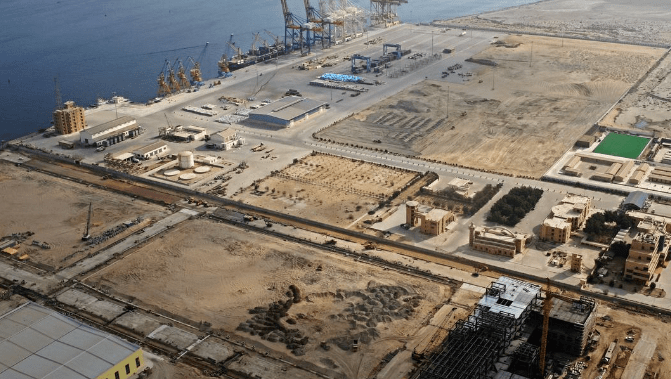
Major news: Pakistan has given the green light in principle to 28 projects totaling billions of dollars that will be presented to Gulf nations for investment with the long-term goal of decreasing dependence on loans and imports.
To combat the country’s economic challenges, a new civil-military forum called the Special Investment Facilitation Council (SIFC) has taken the lead in pushing for rapid economic growth. According to the approved projects list, the food, agricultural, IT, mining and minerals, petroleum, and power sectors would all benefit if all of the authorized plans were adopted by nations like Qatar, Saudi Arabia, the UAE, and Bahrain. Cattle ranches, the $10 billion Saudi Aramco refinery, copper and gold prospecting in Chagai, and the Thar Coal Rail infrastructure plan all fall within this category.
The Diamer-Bhasha dam is part of the original proposal and has been presented to China for investment as part of CPEC. In addition to protecting decision-makers from any probes by anti-corruption agencies, these legislation would expedite the implementation of the 28 multi-billion dollar investment projects that were originally authorized.
The SIFC-approved enterprises may be either joint ventures with other countries or single ownership schemes, according to a new legislation in the works called the Pakistan Sovereign Wealth Fund.
Seven successful state-owned organizations, including blue-chip firms, are transferring their assets into the wealth fund for use on projects authorized by the SIFC.
Prime Minister Shehbaz Sharif said that the SIFC was established to “foster synergy between the federal and provincial governments to facilitate timely decision making; avoid duplication of efforts; enhance investor confidence, and ensure swift project implementation” in Pakistan.
According to sources cited by the Express Tribune, the government has chosen 23 nations to offer these projects to, with Saudi Arabia, the United Arab Emirates, Qatar, and Bahrain being the primary targets.
In an effort to expedite the implementation of these initiatives, Pakistan would give people of these nations higher visa priority.
However, the difficulty will come during the implementation phase, as many obstacles, including bureaucratic hiccups, Pakistan’s reneging on its sovereign commitments to China, and Pakistan’s indecision about geopolitical alignments, could prevent even the strategic projects, such as the CPEC, from fully materializing.
While Islamabad and Beijing had intended to spend $62 billion on CPEC, only around $28 billion has actually been spent.
Pakistan’s Prime Minister and military establishment took economic matters into their own hands last month, barely averting a sovereign default, and negotiated a fresh $3 billion arrangement with the International Monetary Fund (IMF).
Pakistan’s civilian and military leadership have decided to manage the economy together in an effort to increase the country’s non-debt inflows and decrease its dependency on imports from the Gulf.
The bulk of these initiatives, according to the sources, will be carried out on a government-to-government basis. They suggested that maybe some of them might be put up for worldwide competitive bidding.
The SIFC’s highest committee gave the green light to a plan to cultivate 10,000 acres of desert in Cholistan, with plans to expand to 85,000 acres. The sources said that Qatar was looking at this farm in order to satisfy its need for food security.
The ruling also allows for the expansion of the number of farms to five or more, which is significant since the SIFC’s governing council allowed the establishment of a dairy enterprise with 20,000 Holstein Friesian animals (an international breed of dairy cow).
It also gave its approval to a corporate feedlot farm with a capacity of 30,000 animals, with the potential for expansion to five times that number or more.
The SIFC also approved a corporate camel farm with ten thousand camels, with the possibility of expanding to five or more farms.
The Chiniot Iron Ore project, the Barite-Lead-Zinc project, the copper and gold exploration in Chagai, and the lead and zinc exploration in Khuzdar have all been approved by the SIFC.
The SIFC gave its blessing to the ten billion dollar Saudi Aramco oil refinery and the five billion dollar TAPI Gas Pipeline Project.
The establishment of technology zones, an investment project in the optical fiber network, the creation of Cloud infrastructure and a semiconductor designer, the production of smart devices, a global skill hub scheme, and various centers of excellence were all given the green light by the SIFC, the sources said.
It has been determined that the Gulf nations would benefit from hearing about many important initiatives in the electricity industry. Many billions of dollars were spent on projects like the Diamer-Bhasha Dam and the Thar Coal Block II. The Layyah and Jhang Solar PV Projects have also been approved.
The SIFC has also greenlit a hydroelectric project in Rajdhani and two transmission lines (one from Ghazi Barotha to Faisalabad and another from Matiari to Rahim Yar Khan). The sources also said that a project involving Reactive Power Compensation Devices and battery storage for frequency management were to be included.
In addition to requesting an update on the Chashma Right Bank Canal Project’s development, the SIFC approved a feasibility study for a project to build a water reservoir to store flood water for agriculture in Cholistan.
The China-Pakistan Economic Corridor (CPEC) is a set of infrastructural and other projects that have been under development throughout Pakistan since 2013. It is possible that the total amount invested under the SIFC banner would exceed the $28 billion allotted for the China-Pakistan Economic Corridor.







